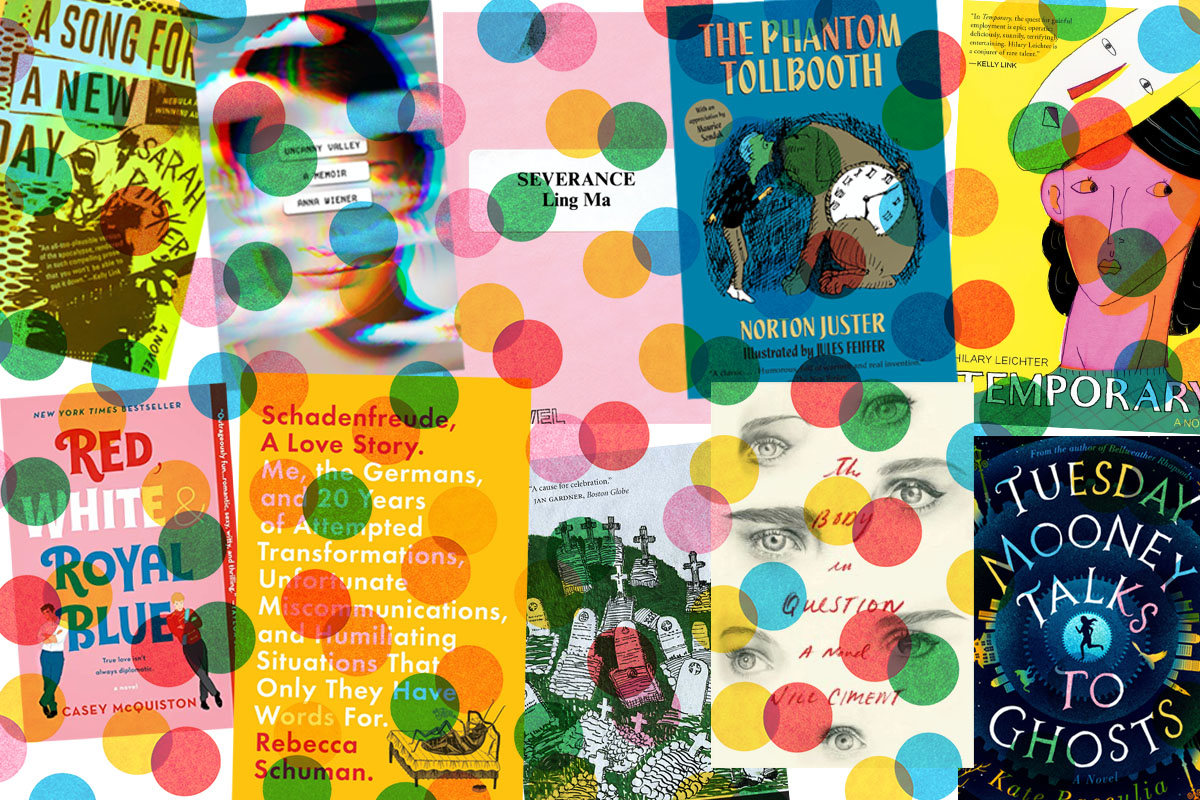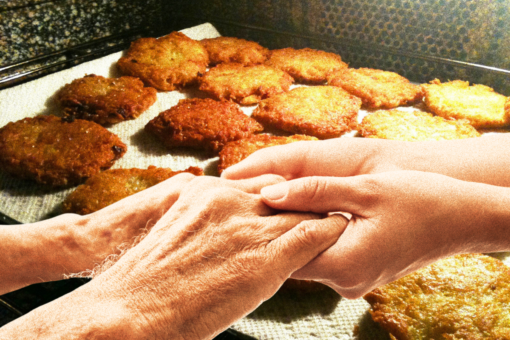As many face an undeterminable amount of time either under quarantine, social distancing, or working from home, you have to fill your time indoors with something. So… any excuse for a book listicle, am I right!?! But first: Want to support authors with new releases? Here are some books we’re super excited about that are coming out this spring 2020.
There are a lot of different reactions to what’s happening right now, and people are gravitating to different types of entertainment: You’re either the type of person who re-watched Contagion immediately, or you haven’t watched any news and instead have binge-watched Love Is Blind. (Or you’re both! We all contain multitudes!)
On Twitter, many are recommending dystopian reads to make sense of what we’re currently experiencing. Emily St. John Mandel, author of dystopian novel Station Eleven, suggested to perhaps wait to read her book.
On that note: Here are some book suggestions for however you’re dealing with the COVID-19 pandemic.
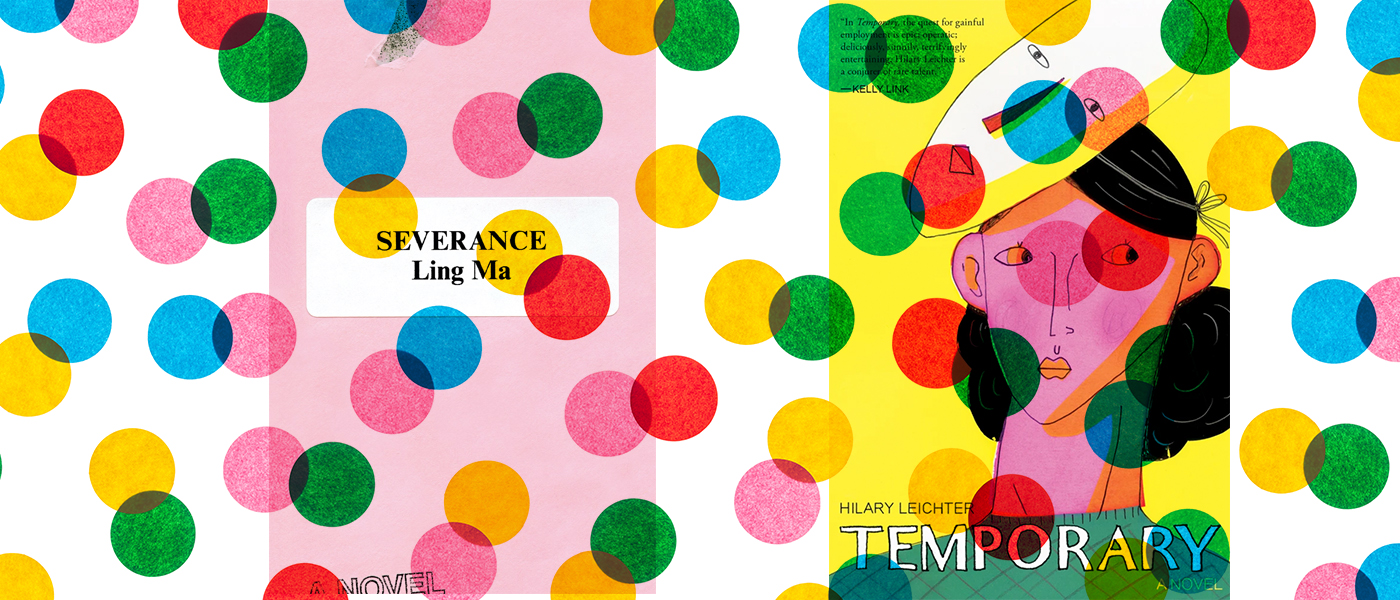
If you want to read everything about pandemics and the end of the world… you should read a book that dives into these topics, head-on. I know everyone has been suggesting you Severance by Ling Ma, but if you haven’t, you should really read Severance. As I wrote way back in our fall 2018 preview, it asks the question: What would a millennial do in the apocalypse? It’s beautiful and haunting, a smart critique of capitalism, and just a little too on the nose for our current situation. And while we’re speaking of critiques of capitalism and the gig economy, you should also add Temporary by Hilary Leichter to your must-read list. It’s about a woman who is a temp and filling in for increasingly strange roles (ending up on a pirate ship and as an assassin’s assistant, among other jobs). I can’t stop thinking about it.
On the more dystopian side of things, I would recommend A Song for a New Day by Sarah Pinsker, where a deadly disease strikes and all public gatherings are banned. It’s centered on two women: Luce, who leaves her insular Hasidic community to become a musician, and Rosemary, who works for a company that streams concerts in virtual reality. (Read more in our fall 2019 books preview.) Another spot-on dystopian read? Fernando A. Flores’s Tears of the Trufflepig is set in a country called South Texas in an alternative near future, where a food shortage has killed millions of people and narcotics are now legal. This has led to the development of “filtering,” synthetically engineering food, that soon turns into bringing extinct creatures back to life. The trufflepig is one such animal brought back to life as a delicacy for the rich. I won’t say more — it’s surreal, dystopian, and a perfect read.

If you want to escape and ignore the news… just read The Phantom Tollbooth by Norton Juster. I’m serious. When was the last time you read this 1961 children’s book? Too long ago. I argue that one, it still holds up, no matter how old you are, and two, it is full of childlike joy and wonder — which is all something we could use at the moment. Juster, 90, is a Jewish architect who wrote the book in his free time; even after the success of the novel, he remained a professor of architecture and environmental design for two decades until his retirement. I’m just so ready to talk about this book, so, can you all re-read it? Let’s meet on Twitter. I’m @emburack. See you then, thanks, bye!
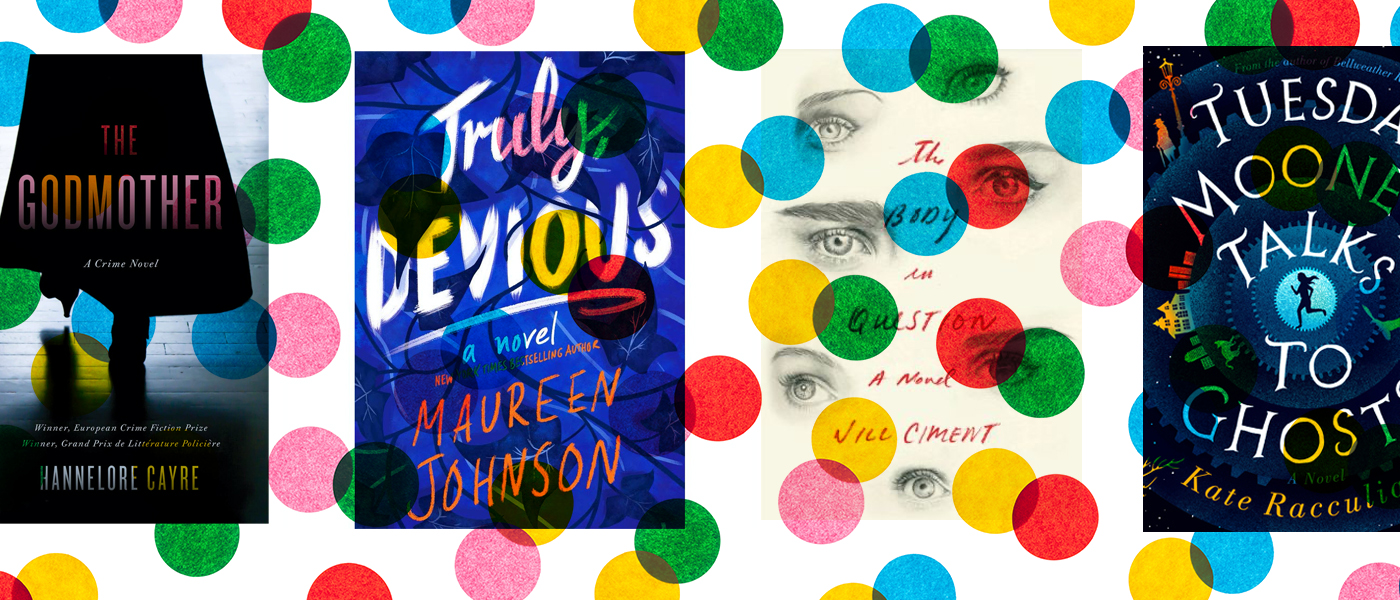
If you feel zero control over what’s happening and want to exert some power and feel like you’re solving something… read a mystery or crime novel or thriller or something that’s all of these at once! (Or go do a puzzle. My mom always recommends doing a puzzle.)
First up, a classic crime novel: The Godmother by Hannelore Cayre, which is being made into a movie starring Isabelle Huppert (out, hopefully, this year!). Translated from French, the story follows Patience Portefeux, a 53-year-old Jewish widow who works as an Arabic translator for the French police. She ends up a drug dealer. It’s a quick read — and a thrilling one. On the other side of crime is The Body in Question by Jill Ciment, which tells the story of two people who are on the jury of a terrible murder in central Florida. Don’t look up more of the plot — it’s gripping, engaging, and makes you think.
If you want a trilogy, look no further than the Truly Devious YA series from Maureen Johnson. It’s murder and mystery and historical fiction all wrapped into one. Set at Ellingham Academy in Vermont for gifted teens, aspiring detective (and true crime fan) Stevie Bell is admitted to the school — and she wants to solve the famous Ellingham mystery: the disappearance of the founder’s wife and daughter. It flashes back to a historical timeline, which wasn’t my favorite, but it kept me hooked for all three books, so, worth investing in. And on the puzzle side of mystery novels, don’t miss Kate Racculia’s Tuesday Mooney Talks to Ghosts. The premise? An eccentric billionaire dies in Boston and sends the city on a scavenger hunt for his fortune. Hell, yes.

If you want to pretend you’re hanging out with friends when you’re actually just by yourself… read a memoir! You seriously cannot go wrong with a good memoir, because it conjures up that person, and their life, so vividly. I recently read Rebecca Schuman’s Schadenfreude, A Love Story: Me, the Germans, and 20 Years of Attempted Transformations, Unfortunate Miscommunications, and Humiliating Situations That Only They Have Words For. It’s the story of Schuman, an American Jewish teen, learning German. Each chapter is a different German word, detailing Schuman’s relationship to the German language, her love for Franz Kafka, and growing up.
Another great memoir by a Jewish woman is Uncanny Valley by Anna Wiener. When I chatted with Anna about her book for Alma, she said, “I really do think that I’m like the least interesting part of the story. And my hope is that it’s a book about a time in a place in a culture. It’s more a portrait of an era than it is of my life; my life is as interesting as anyone else’s life.” Yet, Anna is obviously central to the book, which tells the story of Silicon Valley, tech, and how our world has been changed because of tech. It’s like a really smart friend taking your hand and guiding you through all the insanity. Which, don’t we all need that?
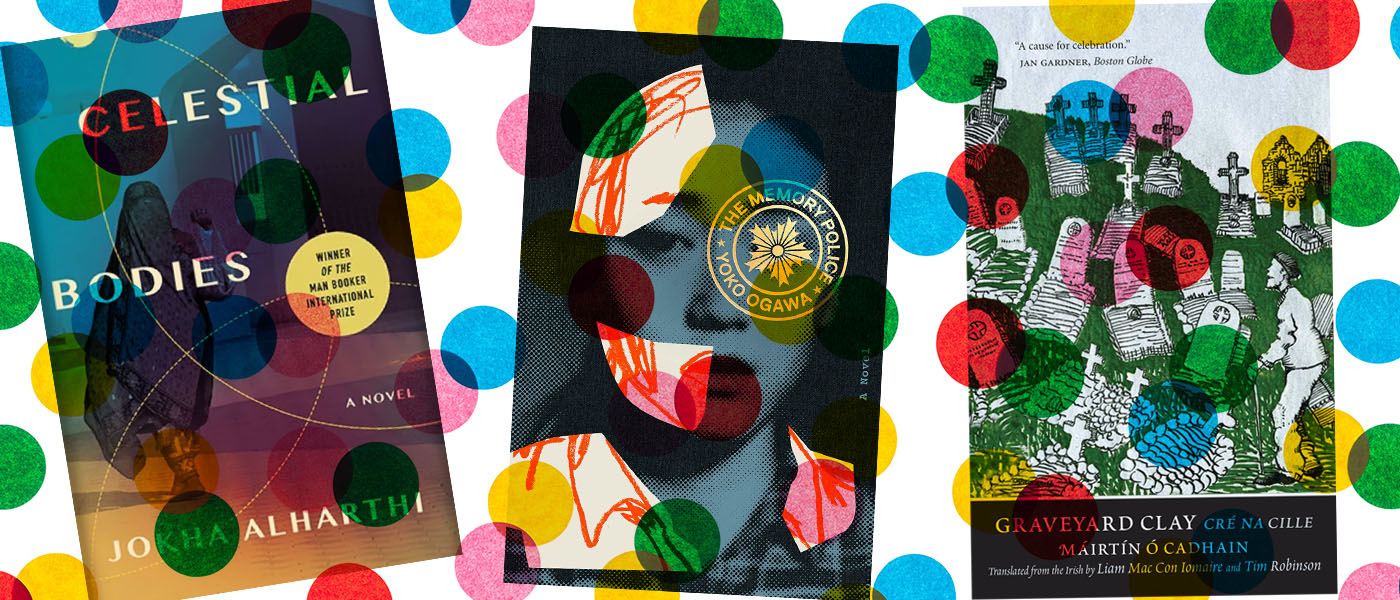
You want to sink your teeth into a really good, challenging read, because when else would you?… let me get up on my soapbox: Read a book in translation!!! I have so many recommendations in this category. Start with last year’s winner of the Man Booker International Prize: Celestial Bodies by Jokha Alharthi (translated from Arabic last year by Marilyn Booth, originally published in 2010), which was the first book translated from Arabic to win the prize, and Alharthi was the first Omani woman to ever have a book translated into English. Alharthi’s novel tells the story of Omani women over generations; it’s powerful, moving, historical, and worth your time.
Another well-deserved buzzy book from last year? Yoko Ogawa’s The Memory Police (translated from Japanese by Stephen Snyder last year, originally published in 1994). In Ogawa’s world, items keep disappearing, and the government employs a “memory police” to make sure people forget what has disappeared. Ogawa said she was inspired by The Diary of Anne Frank, a book she read as a teenager: “I wanted to digest Anne’s experience in my own way and then recompose it into my work.” A must-read in times of rising authoritarianism.
Last, here’s an out-of-left-field rec: Graveyard Clay: Cré Na Cille by Máirtín Ó Cadhain (originally published in Irish Gaelic in 1949, translated into Enlgish in 2017 by Liam Mac Con Iomaire & Tim Robinson). At the time of its release, The New Yorker wrote how it’s “the Irish novel so good people were scared to translate it.” The premise? Conversations between people buried in an Irish graveyard; the plot (no pun intended) only moves forward when someone new dies and is buried, bringing more gossip.
Looking for even more translated books? May I suggest these seven female Israeli authors, most of which were translated from Hebrew.
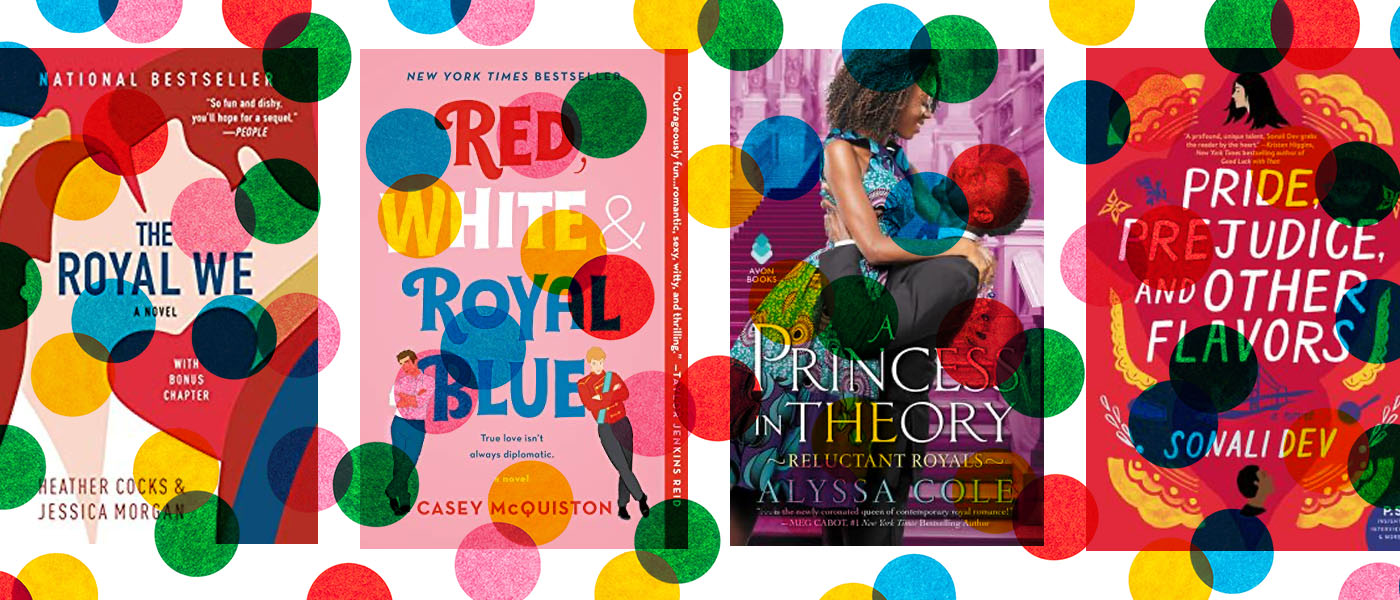
You want books that will make you feel a lot of feelings… read some freakin’ romance novels. Now is the time to get over whatever internalized misogyny you have towards romance novels and dive the fuck in.
I’ve said it before and I will say it again: If you haven’t read Red, White, and Royal Blue by Casey McQuiston yet, wyd?! It’s the story of the President’s son falling in love with the Queen’s grandson, and it is a delight. More royal romance? Run and read The Royal We by Heather Cocks and Jessica Morgan, a fictionalization of Prince William and Kate Middleton’s romance which also sorta predicted Meghan Markle. (The sequel is set to come out in June, and I am ridiculously excited.) Even more royals? If you want a series, check out Alyssa Cole’s Reluctant Royals series. Start with A Princess in Theory, where grad student Naledi Smith finds out she is supposed to be betrothed to an African prince.
If you don’t want a royal romance (I mean, how could you not?), check out Pride, Prejudice, and Other Flavors by Sonali Dev, a re-telling of the Jane Austen classic, except in this version our lovers are Dr. Trisha Raje, a Indian-American neurosurgeon, and DJ Caine, an Anglo-Indian and Rwandan chef. And while it’s a retelling, it’s so much more. It’s a dive into privilege and race and complicated families and looooove.
Want even more romance novels? Check out this amazing list of Jewish romance novels, featuring stories written by Jewish authors about Jewish characters.
If not a single book on this list appealed to you, head over to my Hanukkah gift guide, which has even more books.
We encourage you to shop at a local bookstore (and we hope you do), but we are a non-profit that relies on various sources of income. Therefore, this post contains affiliate links, which means we may receive a commission if you click a link and purchase something that we have linked to. While clicking these links won’t cost you any extra money, they will help us keep this site up and running. Thanks!
